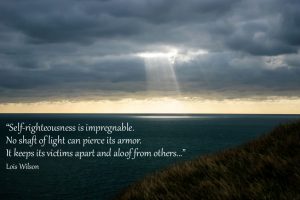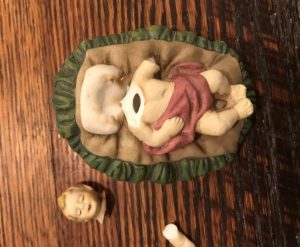my new room
My freshman year of college was a doozy. We’d moved cross-country five times in nine years, and just when I thought I was getting my footing and earned a scholarship to my dream North Carolina school, my family moved again; this time to Florida. My parents told me I needed to pick a Florida school for tuition purposes and the “selection” process that followed was about as intentional as throwing a dart in the dark. I ended up at Florida State University and embarked on what was one of the loneliest seasons of my life. I would go hours upon hours without talking to anyone, my lips sealed and mind disoriented. Three months into the first semester, we finally decided to call it. My dad made plans to pick me up at Christmas break and bring me home to reconsider my college plans. Until then nothing really changed; I was still disoriented, still alone, still silent as I wandered across that wide, muggy campus. But knowing that loneliness had an end date made it a little more bearable.
If you spend any time in counseling conversations or even counseling-adjacent conversations, with a small group perhaps, you’re likely familiar with the idea that our past informs our present. The stories and families that bore us do much to shape and contour how we move about the world. You are also likely to be familiar with the notion that to be present, here and now, is to be well and to know God. And that to wonder about the future is folly at best. Past, present, future. Three places we can be at any given moment. In seasons where I’ve felt spread thin, I’ve heard myself rail, “I can’t be in two places at once.” I’m not sure that’s entirely accurate. There’ve been many times when I’ve driven a familiar route home and pulled in the driveway only to realize that I had no memory of any of the traffic lights I went through on the way. My body was in my car, but my mind was elsewhere.

So, what about us? Where are we to spend our time? What is noble and good and right? Is it possible to walk the line of reflecting on our past, engaging our stories of grief and loss, but not dwelling on it to the point of self-absorption? Can we remain present even if the present moment is painful and lonely beyond words? I’m not sure, but I think the answer is yes. But only if we balance ourselves out. Only if we get good at also looking at the future. Not in the sense of next month or next year, but in the sense of looking beyond the horizon at the life to come as a regular habit. A discipline. A practiced hope in something earthy and promised.
Looking at the future has become synonymous with anxious hand-wringing in the Christian conversations I’m a part of. And I get it, I really do. I can’t control it and certainly can’t predict it, so it only serves to unmoor me from my current post in life. But what if we just looked at little further, past the horizon, towards a land we only hear of. Towards the house with many rooms, one of which apparently has been well-appointed just for me. Author and pastor Dr. Tim Keller said that our now is controlled by our then. The African-American people, particularly around the time of pronounced slavery, have known this truth out of necessity. They crafted spirituals to sing their pain and proclaim their hope in ways that moved them from one excruciating day to another. Howard Thurmond, Christian author and civil rights activist says this:
“Their sung faith deepened the capacity of the slaves for endurance and their ability to absorb their suffering. It taught a people how to ride high in life, how to look squarely in the face those facts that argue most dramatically against all hope and to use those facts as raw material out of which they fashioned a hope that their environment, with all its crudely, could not crush. This enabled them to reject annihilation and to affirm a terrible right to live.”
To be able to “look squarely in the face those facts that argue most dramatically against all hope…” would be unbearable without an end date to our suffering. But knowing that our Father has already determined when He’s coming back to pick us up—quite literally a date on the calendar—has the potential to put steel in our spines as we courageously stand up in the reality of now.
So the next time you find your mind wandering to the future and you feel your shoulders raise with tension, your jaw clench in anxiety, look a little further ahead. Squint past the years of “will my child ever figure it out” and “can my marriage thrive in the empty nest years” and “what if the cancer comes back” and “is there enough money to take us to the finish line.” Look to life beyond the horizon and gaze there a little longer. Not in abstractions that cannot comfort the heart. Not in an ethereal sense of being “heaven bound.” Let your feet stay planted and wonder….”what will my room be like in my Father’s house?”
 Kristin Leathers began work as a Licensed Clinical Mental Health Counselor in 2008 and became a member of Barnabas Triad in 2019. In addition, she has worked for Young Life for 14 years. She earned her MA in Counseling from Gordon-Conwell Theological Seminary and her undergraduate degree from Meredith College. Kristin has been married for 17 years to her husband, Eric, and together they have two children. Kristin enjoys being with her friends, playing games, exercising, and all things related to home design. She is proud of her family, her work, and to be rounding out her third time through all seasons of Downton Abbey.
Kristin Leathers began work as a Licensed Clinical Mental Health Counselor in 2008 and became a member of Barnabas Triad in 2019. In addition, she has worked for Young Life for 14 years. She earned her MA in Counseling from Gordon-Conwell Theological Seminary and her undergraduate degree from Meredith College. Kristin has been married for 17 years to her husband, Eric, and together they have two children. Kristin enjoys being with her friends, playing games, exercising, and all things related to home design. She is proud of her family, her work, and to be rounding out her third time through all seasons of Downton Abbey.







